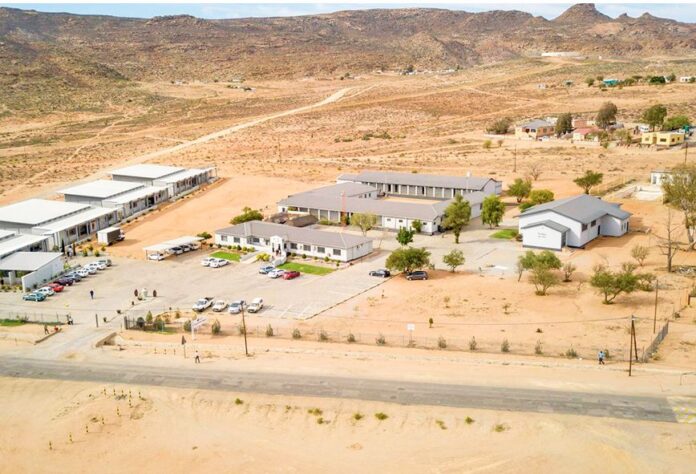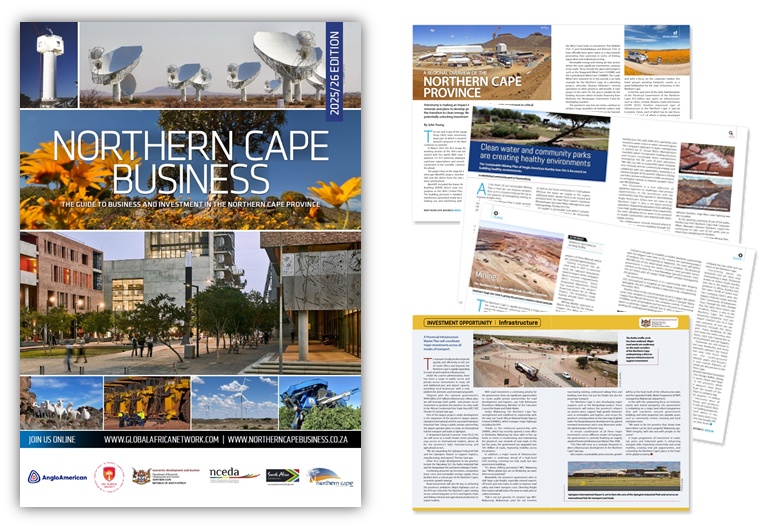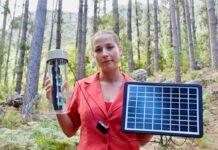When Northern Cape Premier Dr Zamani Saul delivered the State of the Province Address (SOPA) at the Mittah Seperepere Convention Centre in March 2025, he not only inaugurated the seventh administration of the provincial government, but also fired the starter gun on a campaign to focus on skills and jobs.
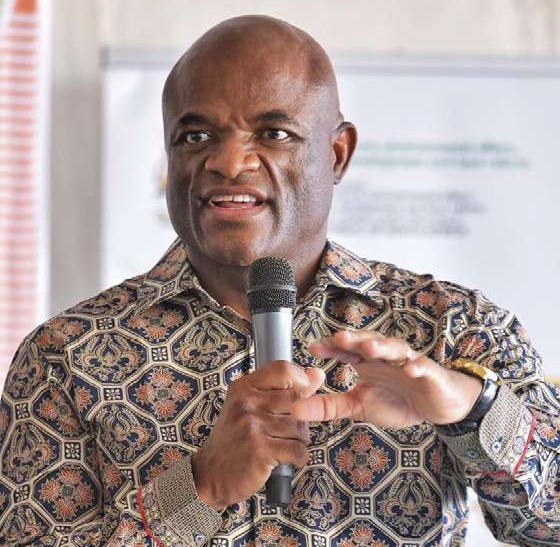
As one would expect from a man with a strong academic background, Dr Saul gave special attention to education as the basis on which training for skills is built.
In the five years of the previous term of office, more than 900 teachers were added to the cohort of educators. For the 2025 year, the Premier announced that close to 300 bursaries would be granted, at a cost of R17-million. By targeting the study of certain subjects, the priorities of the Provincial Human Resources Development Strategy are to the fore: “address the skills mismatch” in the province.
Subjects chosen are Agriculture, Computer Science, Engineering, Science, Law, Commerce, Education, Fine Arts, Humanities and Health Sciences.
An “Access for Success” university preparation programme is underway in the !Kheis Municipality, enabling pupils from economically disadvantaged areas to study STEM subjects (Science, Technology, Engineering and Mathematics).
Leading an article on jobs and skills with reference to university studies might seem strange, but Sol Plaatje University (SPU) has an understanding that it needs to be relevant to the needs of the province where it is located, and that includes preparing people for the jobs market.
SPU is decidedly not neglecting its higher educational responsibilities, and Premier Saul proudly noted in his speech that the university has 13 nationally recognised researchers, but the launch of the Centre for Entrepreneurship Development and Research (CEDAR) and the establishment of the Centre for Entrepreneurship and Rapid Incubator in Upington indicate a willingness to help prepare young people for running businesses.
The university’s Talent Pipeline Programme (TPP) helps to prepare matriculants from local schools for university education and the Lesedi La Afrika Fund supports scholarships and social-impact projects. The fund recently received R20-million and R5-million from Kumba Iron Ore and the De Beers Group respectively.
Other options that SPU offers that are highly relevant to Northern Cape realities are the Risk and Vulnerability Science Centre where climate change is a key focus, in a hot province which is getting hotter. The Department of Computer Science and Information Technology is highly relevant in a province hosting one of the world’s great astronomy projects, the Square Kilometre Array (SKA).
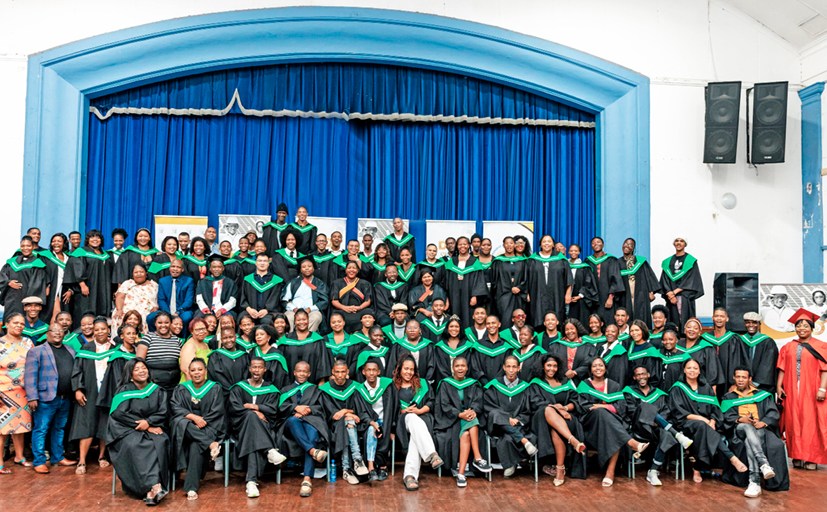
National and provincial plans
A Provincial Skills Development Forum is to be established which will operate within the framework of a national target of 2.5-million new jobs by 2030. The Northern Cape has set a target of 60 000 in five years.
This will be the end goal of the “Northern Cape 60 000 Jobs Plan 2025-2029”, a roadmap in which the priority sectors will be mining, agriculture, renewable energy, manufacturing, tourism and the oceans economy.
In SOPA, Dr Saul noted that in the five years to 2025, the province had created 27 000 jobs and that the figure for current employment (on the March morning on which he was speaking) was 355 000, the highest number ever achieved in the province. A total of 80 000 new jobs had been created between June 2020 and March 2025.
Central to achieving these goals are the Sector Training and Education Authorities (SETAs) and the Technical and Vocational Education and Training (TVET) colleges, which have a tight focus on the acquisition of skills that will enable employment. Finding the correct and relevant courses are critical if the skills gap is to be closed.
There are two TVET colleges in the Northern Cape but both have multiple campuses. The Northern Cape Rural TVET College consists of five campuses located in Upington, Kathu, Kuruman, Namaqualand (Okiep, pictured) and De Aar while the Northern Cape Urban TVET College comprises three campuses in Kimberley: City Campus, Moremogolo Campus and Phatsimang Campus. In 2022, a total of 11 897 students enrolled to study at these facilities.
The Unemployment Insurance Fund (UIF) has partnered with the Northern Cape Provincial Government in rolling out skills programmes. The UIF Fund’s Labour Activation Programme invested R725-million aiming to benefit 23 000 unemployed young people. So far, 11 083 youth have been signed up and are studying construction, enterprise development, ICT, agriculture, security, mining and hospitality on a three-year programme.
In 2025, 800 people will study subjects such as arc welding, electrical engineering, renewable energy and mechanical workshop assistant.
Other notable contributors highlighted by the Premier include:
- merSETA: skills and bursaries, R210-million, 2 000 beneficiaries
- Services SETA: skills and bursaries, R45-million, 755 beneficiaries
The province’s big mining companies invest heavily in skills development and have formed a significant part of the training landscape for many years.
Minerals Council South Africa reports that 26 mining companies spent about R500-million in the Northern Cape in 2015 on various socio-economic development initiatives, including education and skills training. This spending continues in the present day.
The province’s newest big sector, renewable energy, is similarly investing in training. The DLO Skills Initiative, which aims to ensure that local adult workers, youth and women are not left behind in the Just Energy Transition, has partnered with Chinese renewable energy company Longyuan South Africa Renewables to provide 100 unemployed youth in De Aar with a three-month training course in solar panel cleaning and maintenance.
Northern Cape Business 2025/26 edition
Read more about the Northern Cape in the 2025/26 edition of Northern Cape Business, the guide to business and investment in the Northern Cape Province. Read the eBook:



